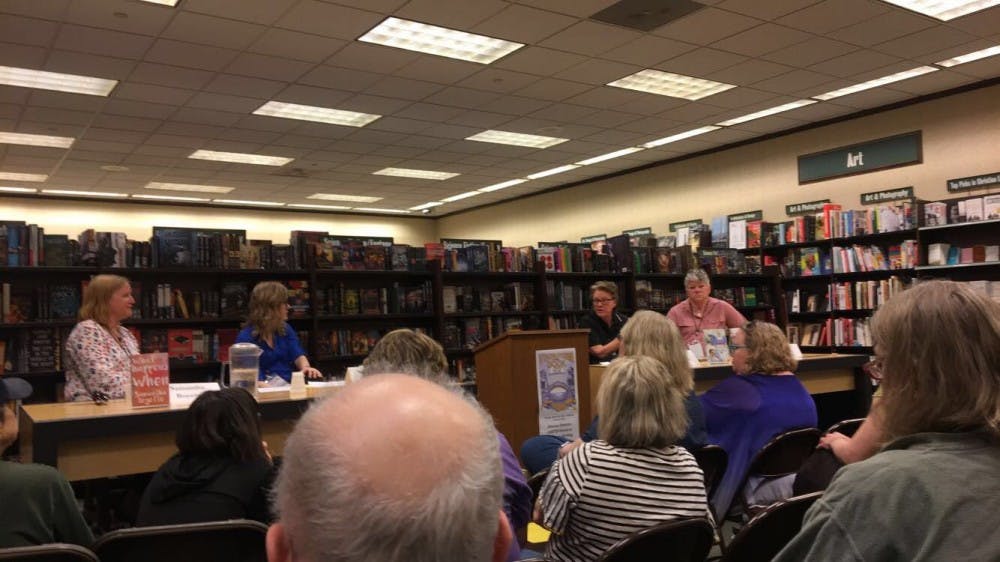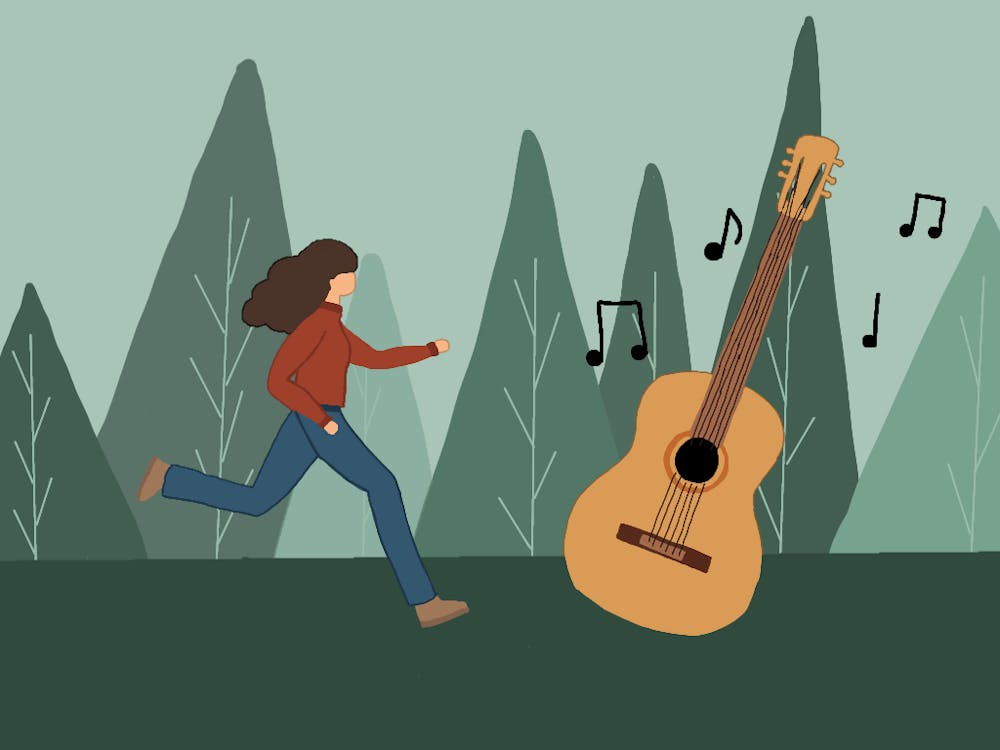The Virginia Festival of the Book held an event Sunday titled Diverse Desires: LGBTQI Voices in Romance Writing. The event was sponsored by the Charlottesville Pride Community Network and hosted by the UVA LGBT Committee for Faculty and Staff. The discussion between Samantha Boyette, author of “What Happens When,” D. Jackson Leigh (“Ordinary is Perfect”) and Radclyffe (“Passionate Rivals”) was moderated by Sandy Lowe, senior editor at Bold Strokes Books. Each writer has been published by Bold Strokes Books, an independent publisher founded in 2004 that publishes books with affirming storylines for the LGBTQI community.
The discussion opened with a simple question posed by Lowe — what is LGBTQI fiction?
“Our main characters are LGBTQI… rather them being a character in the background,” said Leigh.
Radclyffe expanded upon this, saying that while LGBTQI fiction focuses on queer lives, it speaks to the general experience of everyone.
“The things we struggle with in relationships transcend gender,” Radclyffe said.
In considering themes that are unique to the LGBTQI community, the typical coming out story seemed to separate the genre from others.
“There was a huge focus on the coming out story… [and] a lot of those stories don’t necessarily end well,” said Boyette.
However, Boyette pointed out that these coming out stories are not necessarily the focus anymore since these real-life events are ending more happier than they used to.
Radclyffe emphasized the same trend in transgender fiction, noting how almost every transgender book involves a coming out narrative.
While each author agreed that their literature should strive to be more diverse than it is, Lowe questioned if this focus on diversity has changed how each author writes. Leigh revealed that although it would not be her natural tendency to create a character that was a different race than herself, it is an effort that is necessary and valued by readers who would like to see themselves represented. “Writers are getting braver,” said Leigh, symbolizing the concerted effort of writers to gain a true understanding of the diverse people they aim to write for and about. Boyette, however, voiced her frustrations about how her readers are not feeling like it’s their lived life. “Should I even bother trying?” Boyette said.
How can writers encourage diversity while remaining authentic to the struggles and emotions of these groups and people? As Radclyffe clarified that writers must create characters who are authentic within the history the writers have created for them, she emphasized the importance of creating formative episodes for these characters and incorporating these backstories in the narrative. After an audience member asked how this balance can be achieved, Radclyffe attributed her knowledge about the transgender community to watching YouTube videos made by transgender people.
“These kids put their experiences out there,” said Radclyffe. “I try to get a sense of what they’re feeling.”
When asked about the authors’ tips on how to write diverse characters, each emphasized the importance of doing research to truly understand the circumstances and emotions of their character.
“I think that you should read what you want to write,” Radclyffe said. “I like to read biographies, blogs, whatever you can get that’s real life first.”
Boyette suggested that the emotions of each character are what anybody can relate to.
“The overall emotions of the human experience are vaguely the same,” said Boyette.
The authors celebrated the emotion of the romance genre when prompted to answer why romance is so popular for the LGBTQI readership. While Boyette attributed this popularity to the meet-cute that does not happen everyday for the LGBTQI community, Radclyffe thought that readers can better relate to this genre as they can find many elements of the narrative in their daily life. Leigh, however, complimented the genre’s ability to lift readers’ spirits because there will always be a happy ending.
“Whatever is facing those characters, they are going to overcome it,” said Radclyffe.
At the conclusion of the event, the authors gave advice to aspiring LGBTQI romance writers in the audience. The authors conveyed the sincerity necessary for writing in this genre, again emphasizing the importance of truly understanding and embracing their characters lives and struggles.
“People forget that our sexuality is part of our lives everyday… that needs to be in our books,” said Radclyffe.
The profound efforts by the panel of authors to increase diversity matched audience members’ stories of personal growth in an unexpected way. Audience members expressed their gratitude to these authors for creating narratives in which they can see themselves and gained insight to how they can become part of this movement as well.
“Those of us who have finally found this genre are eating it up,” said an audience member.





